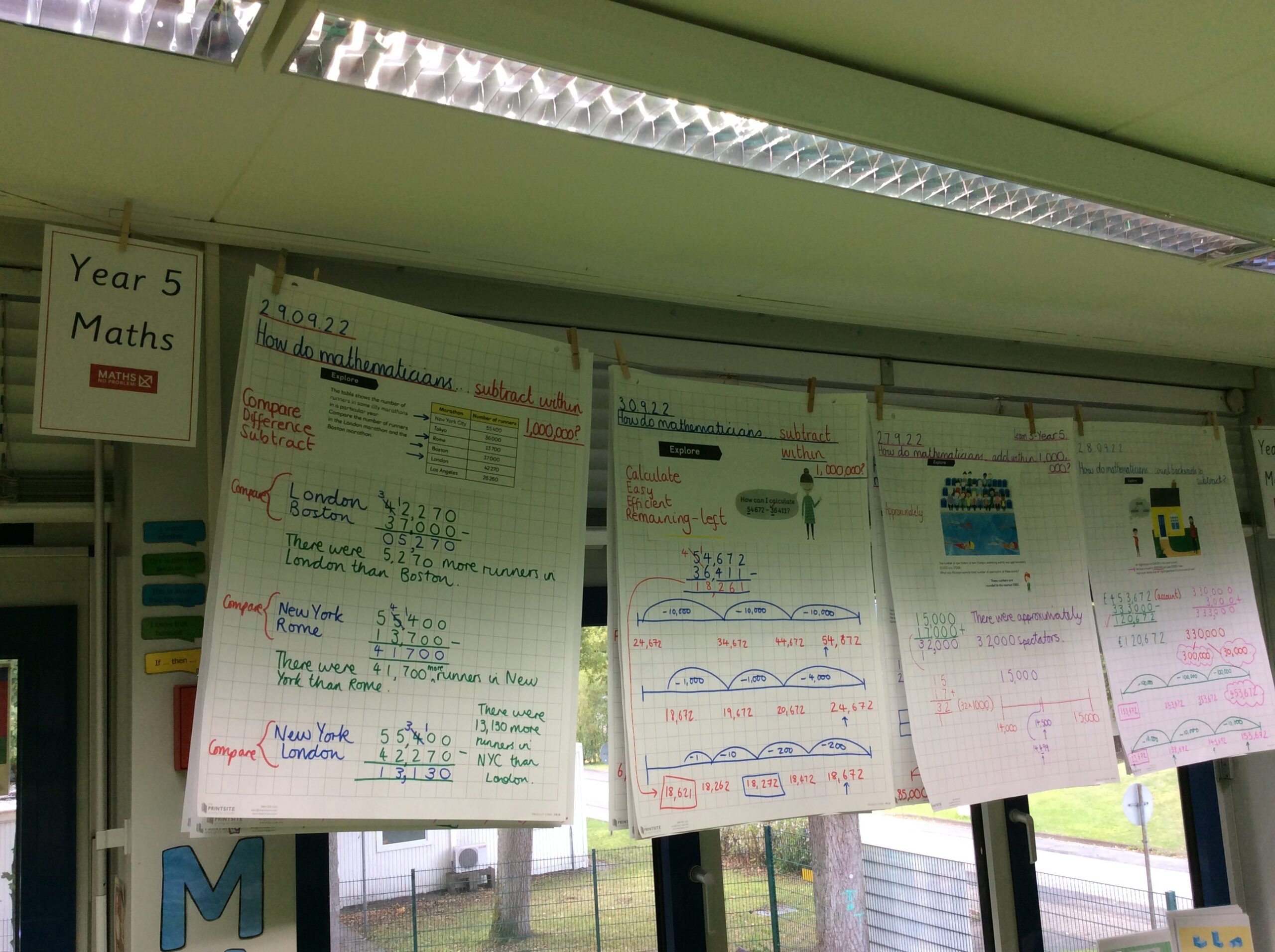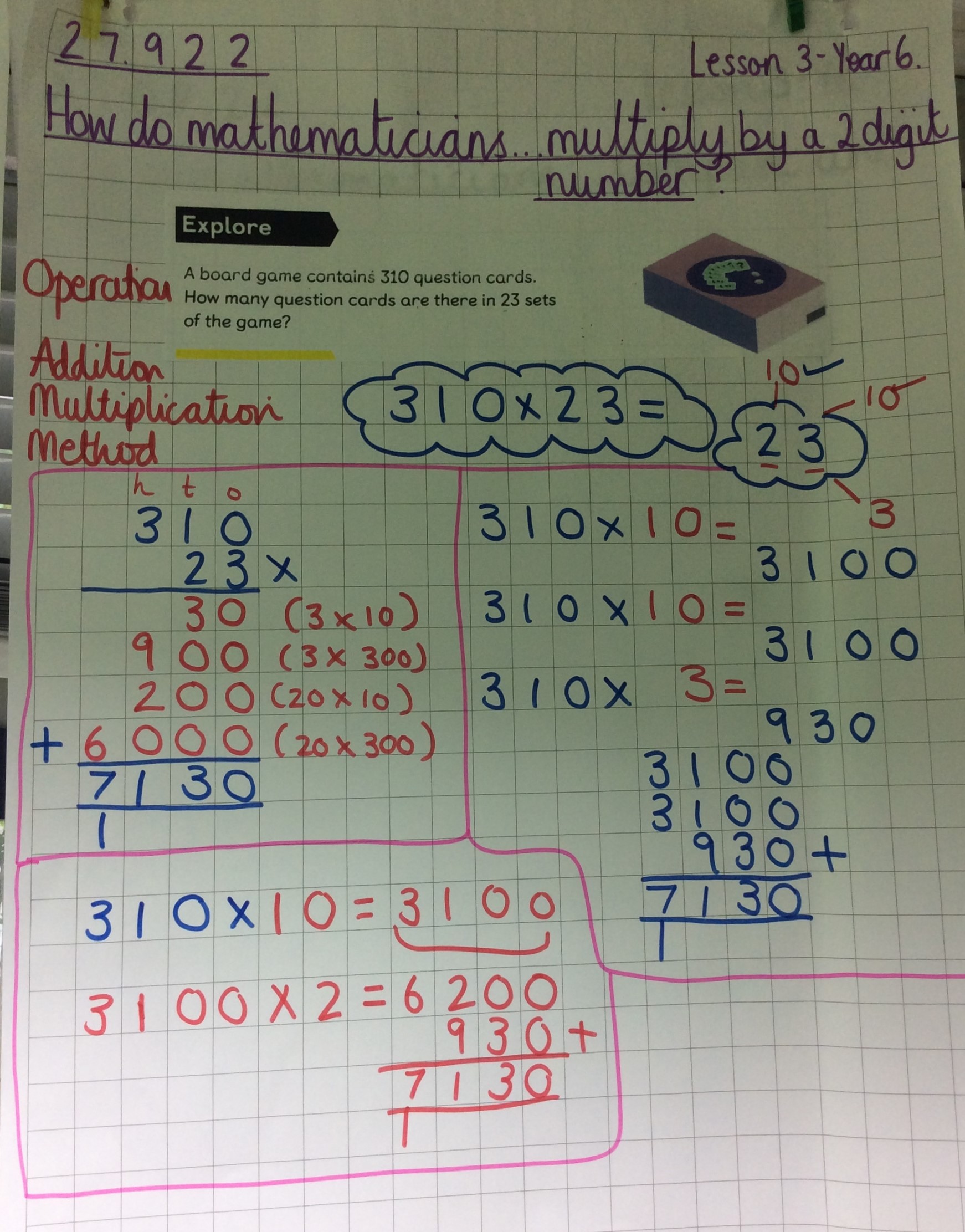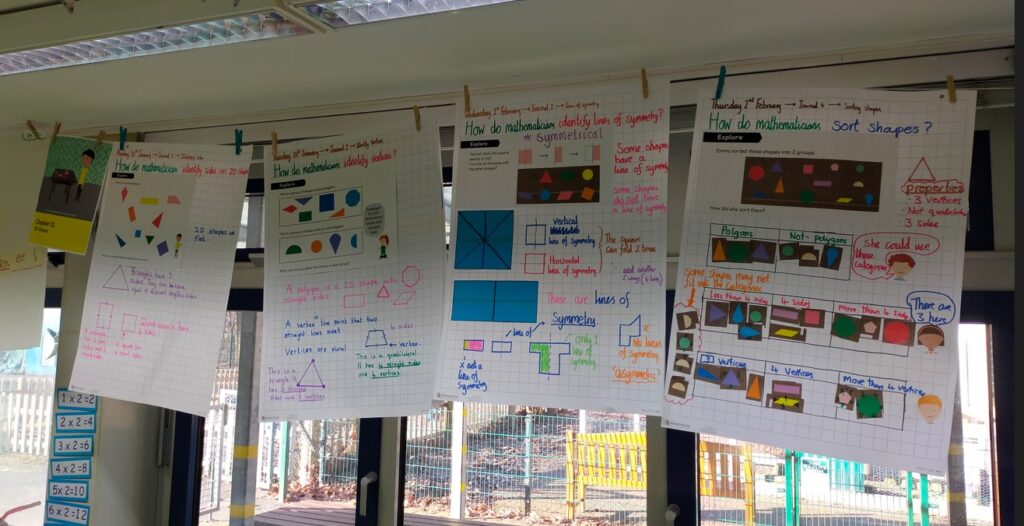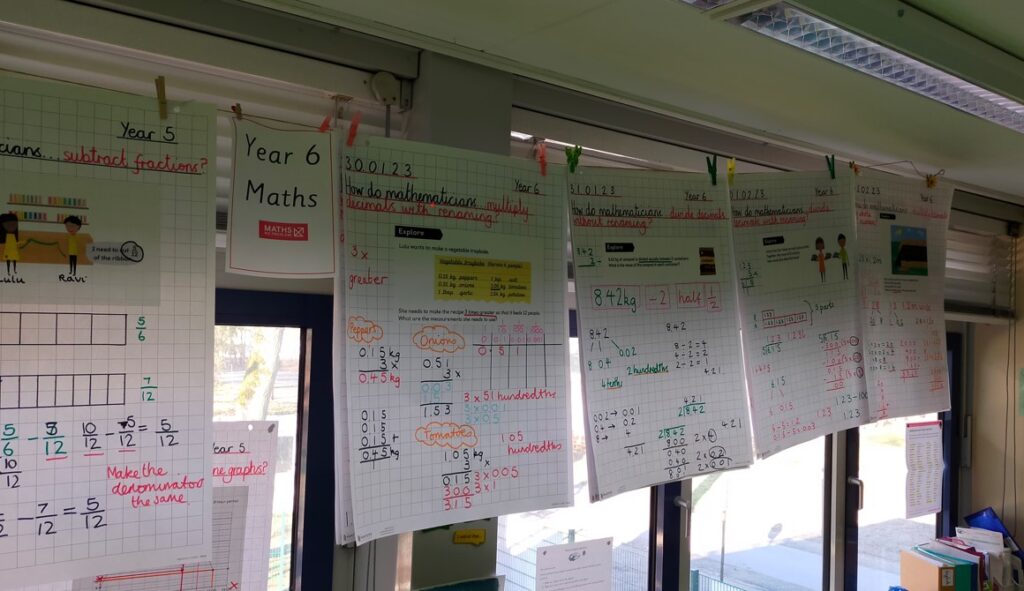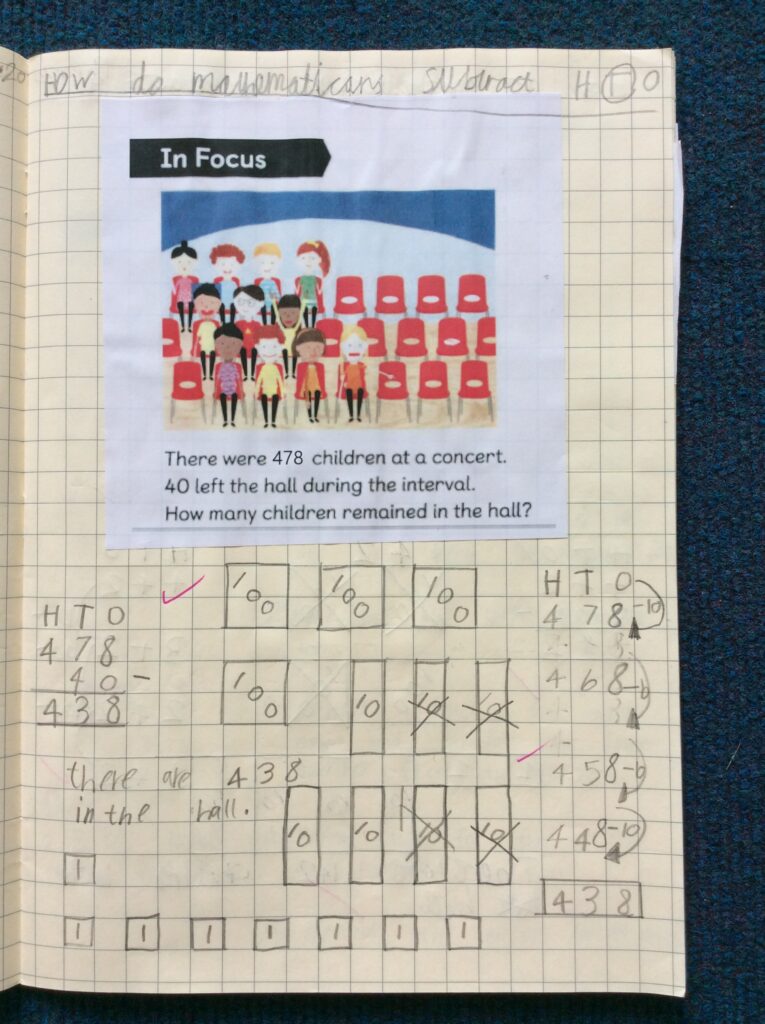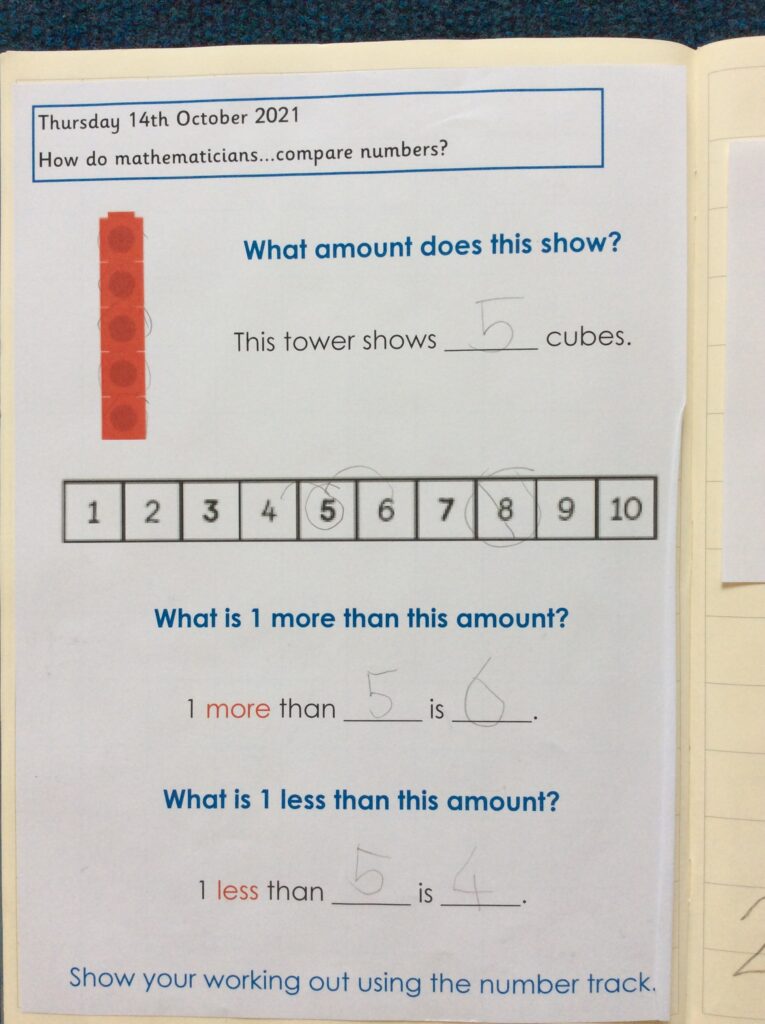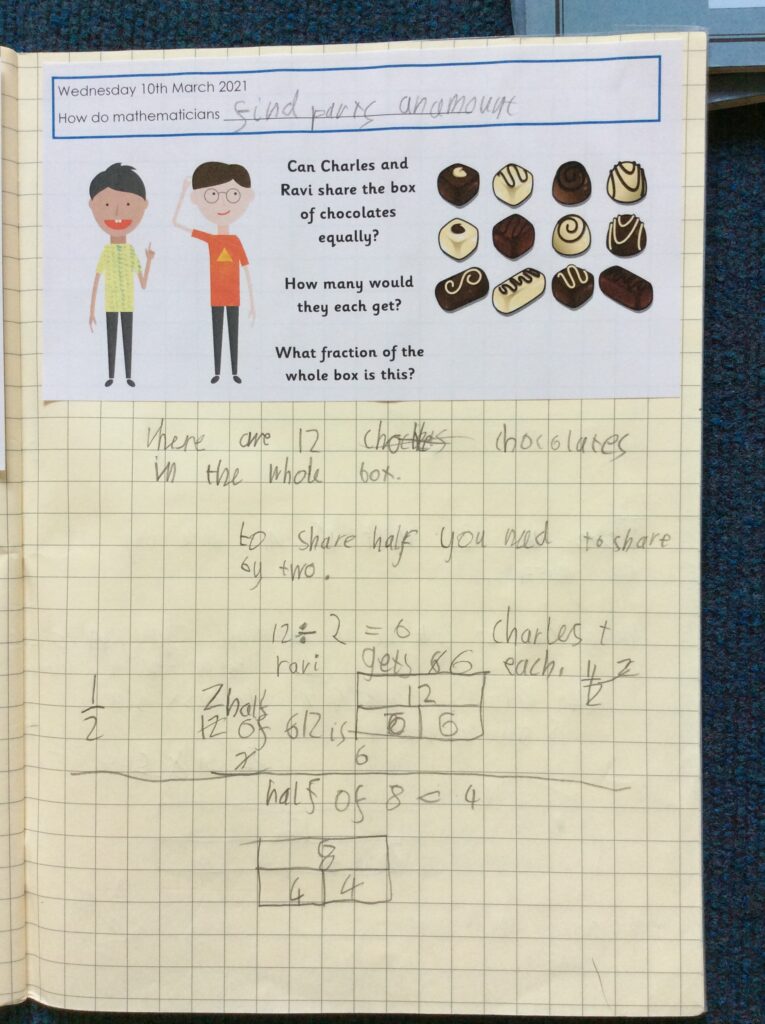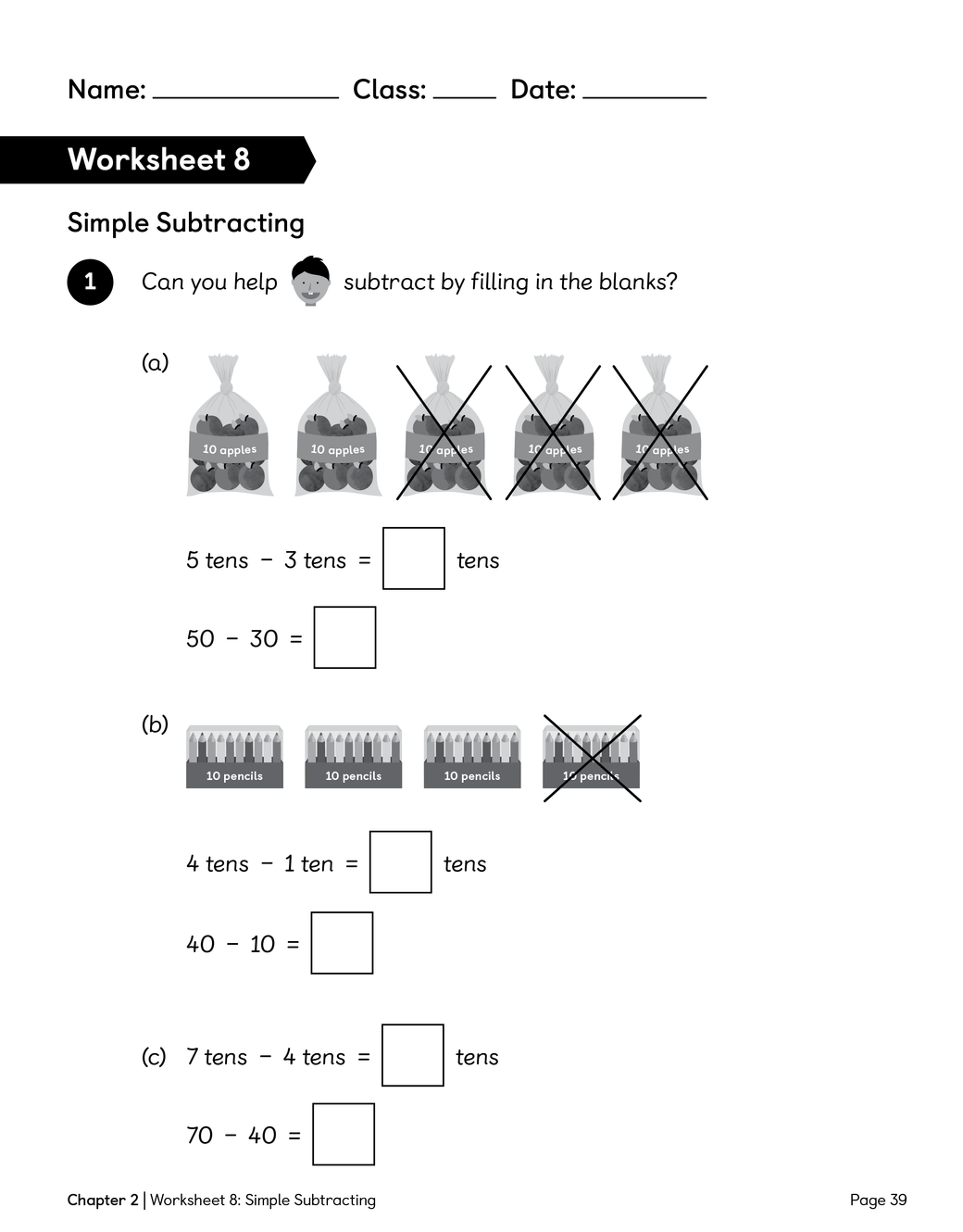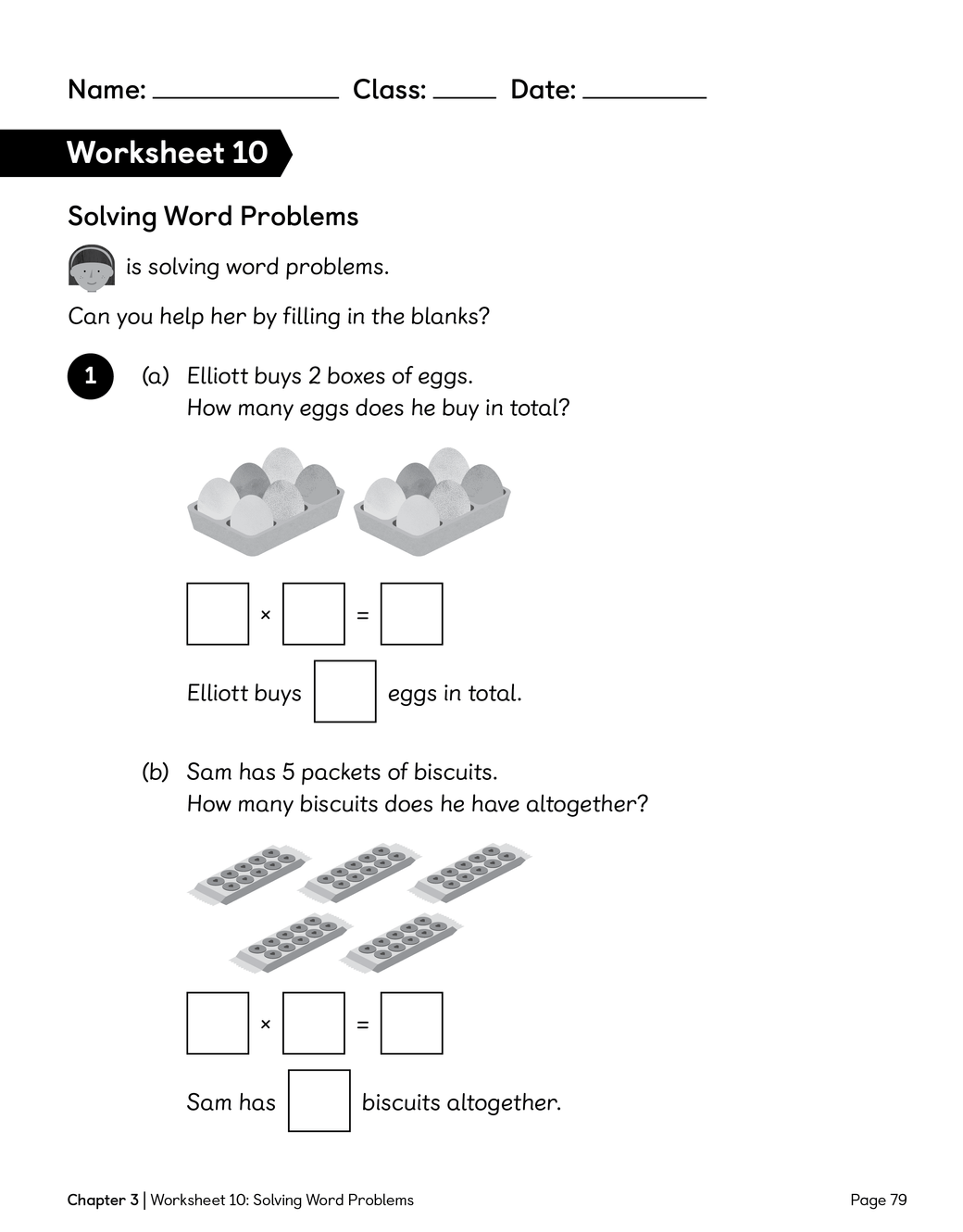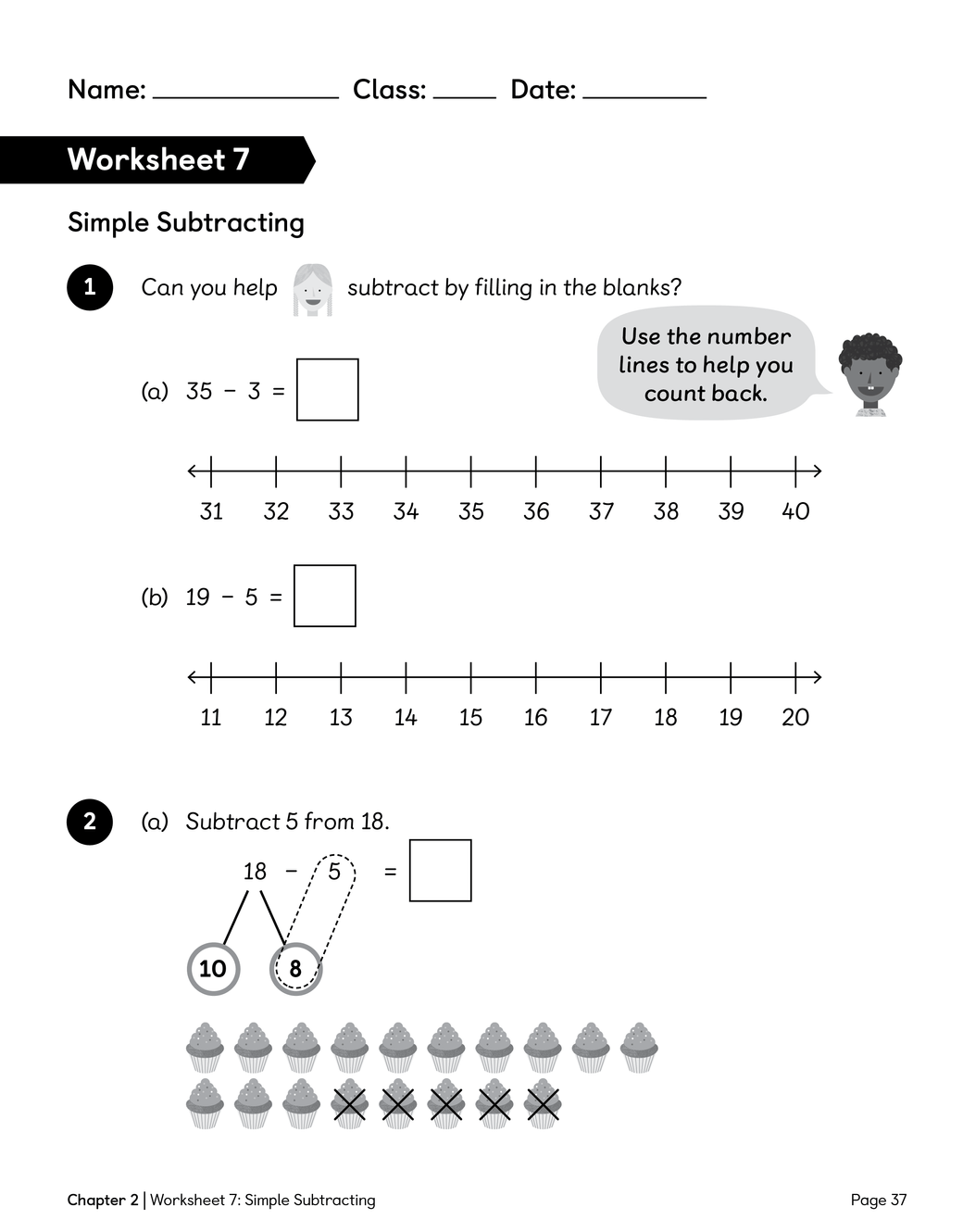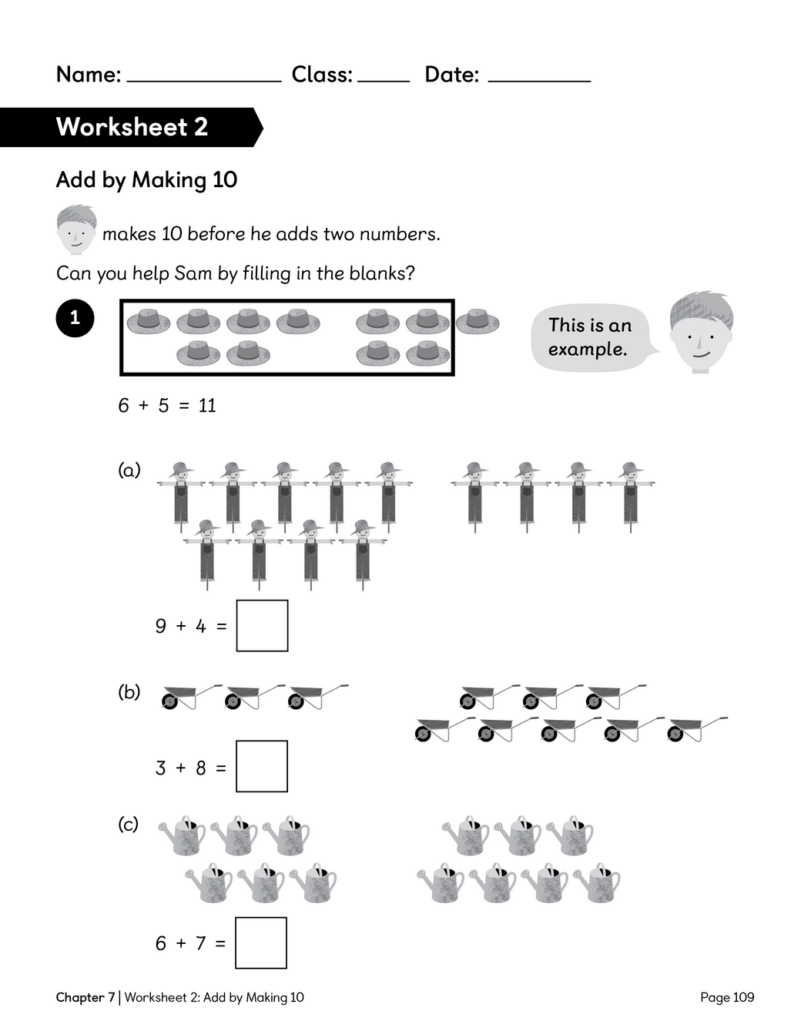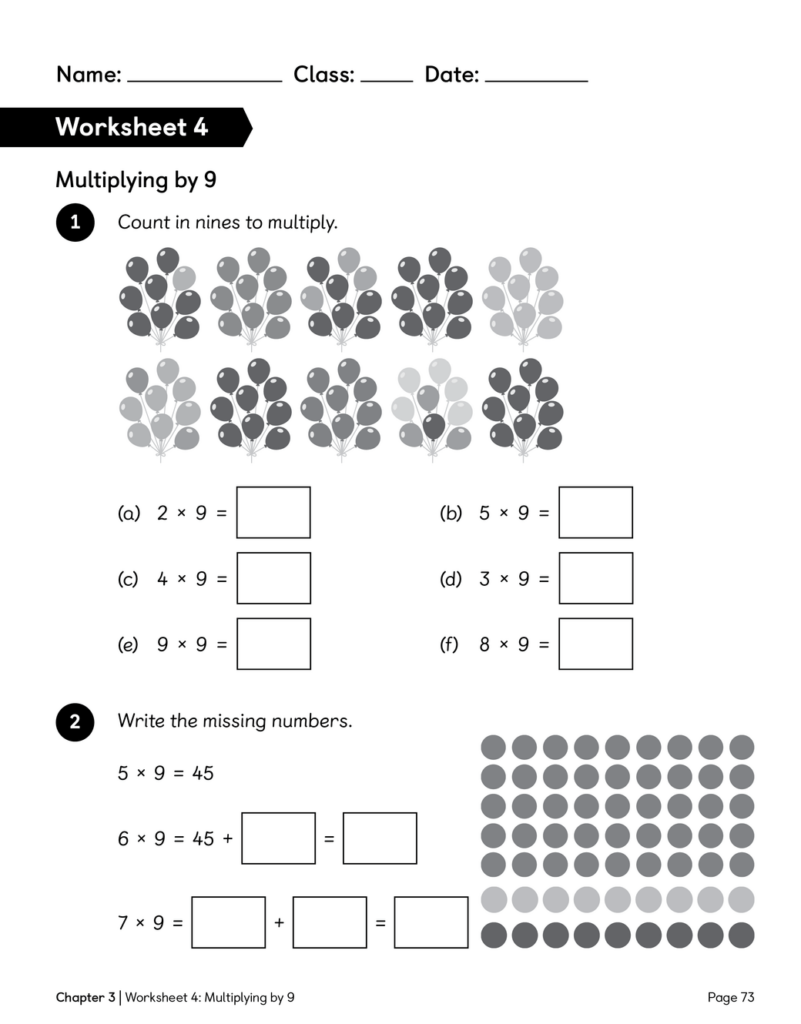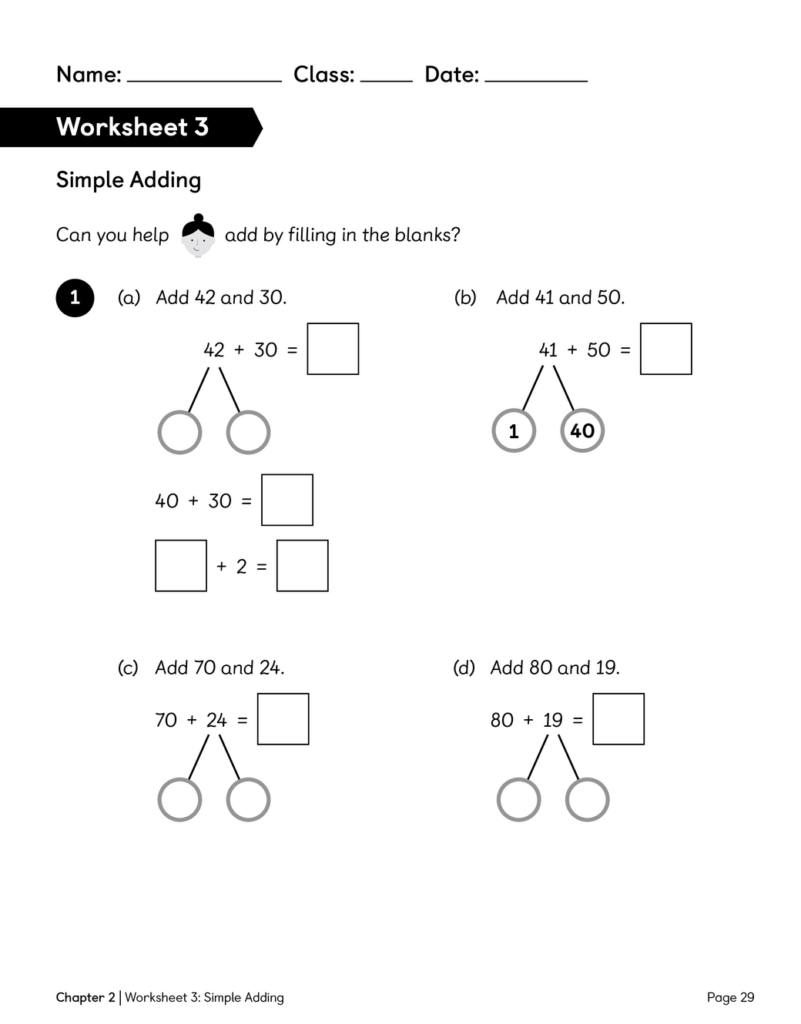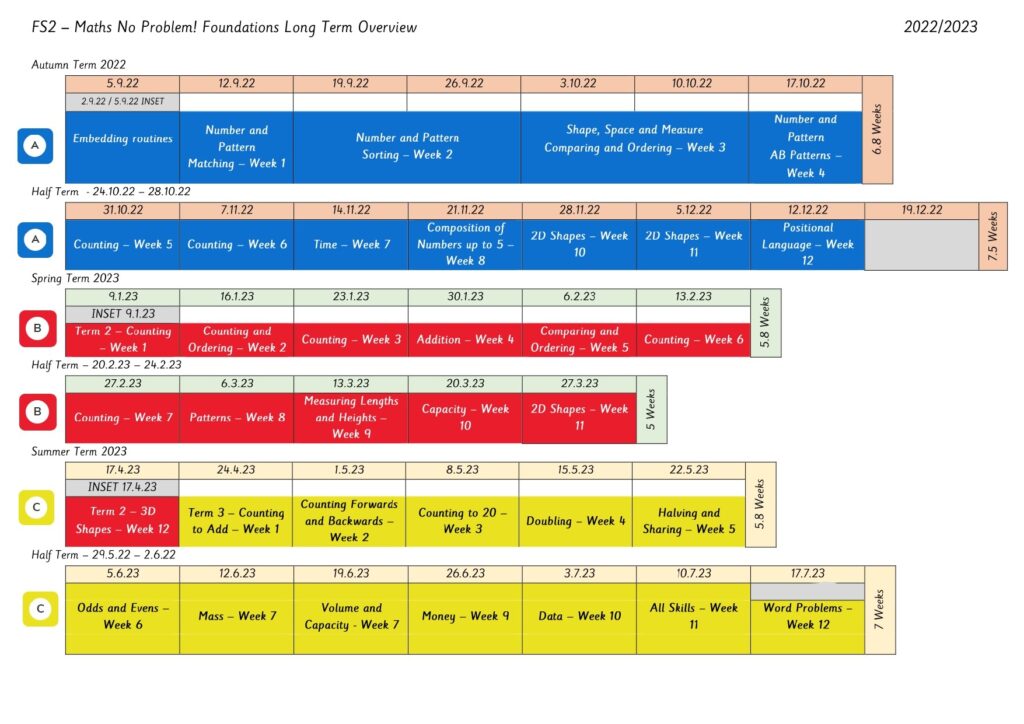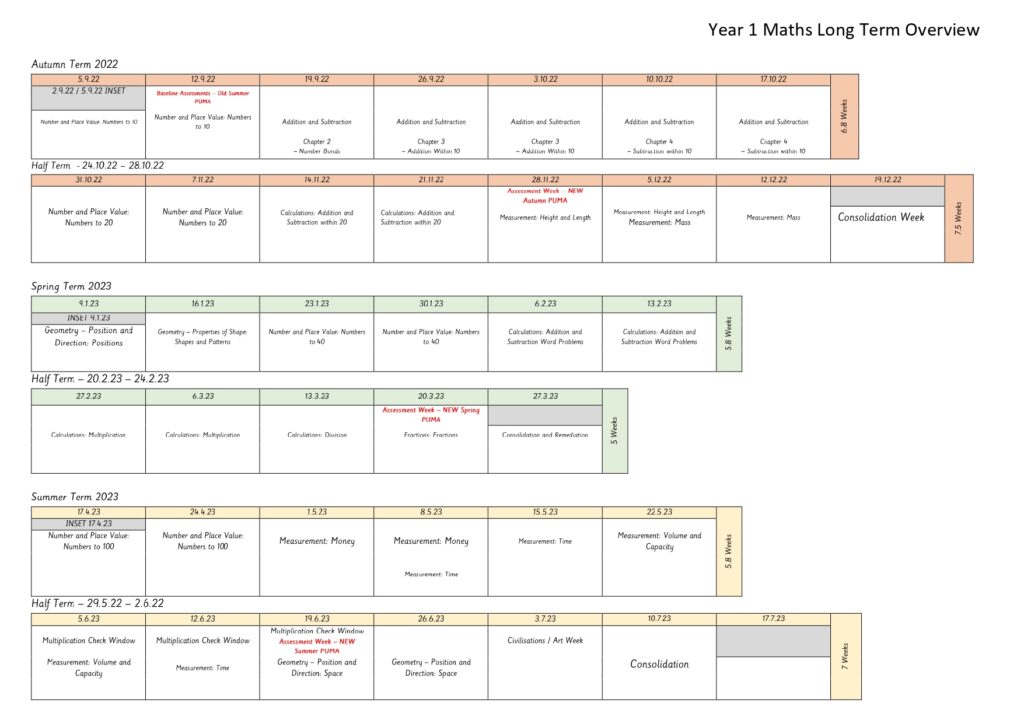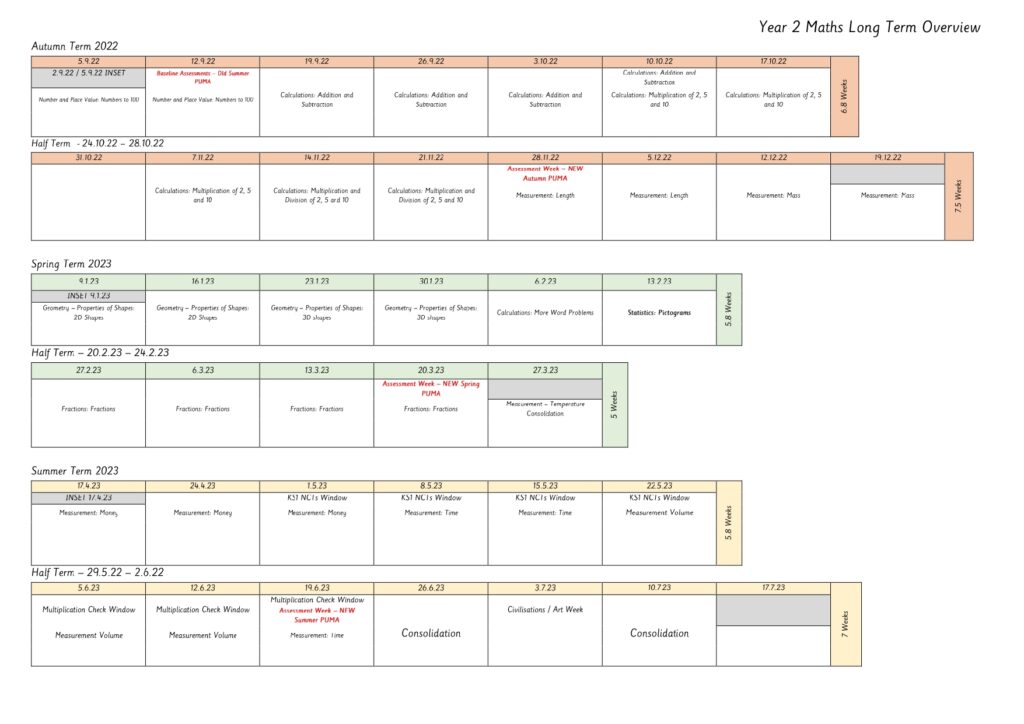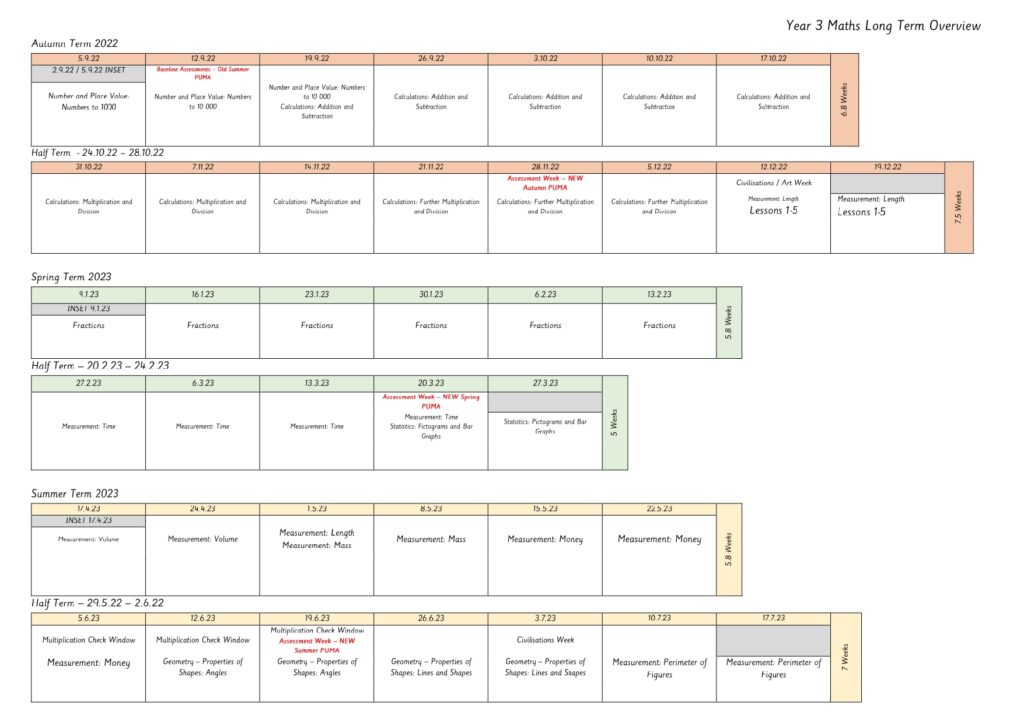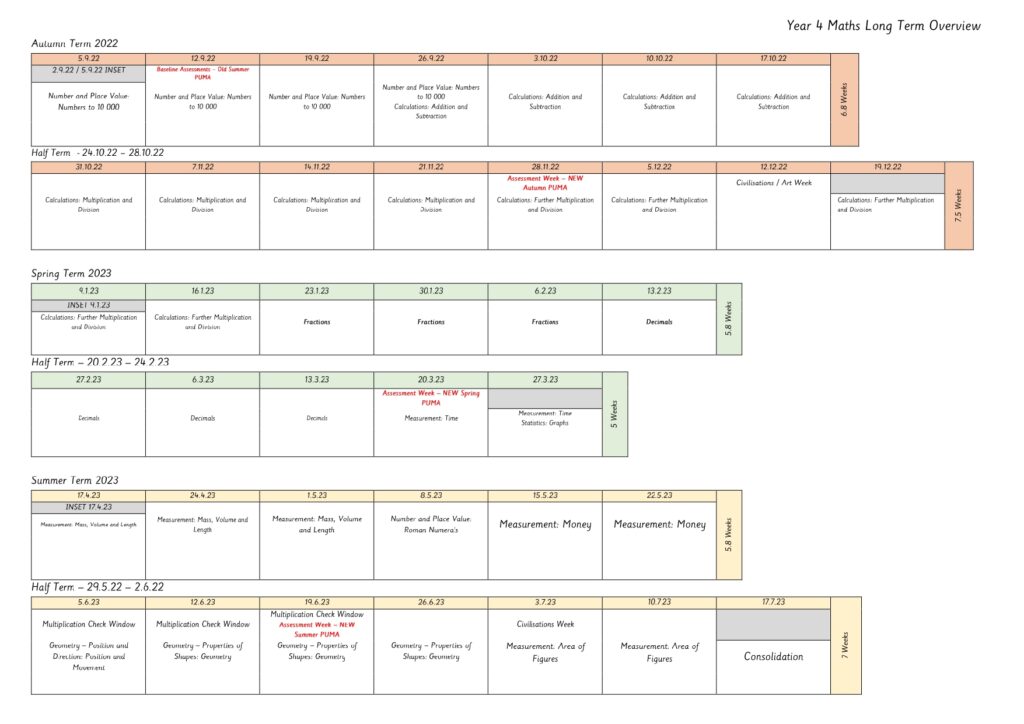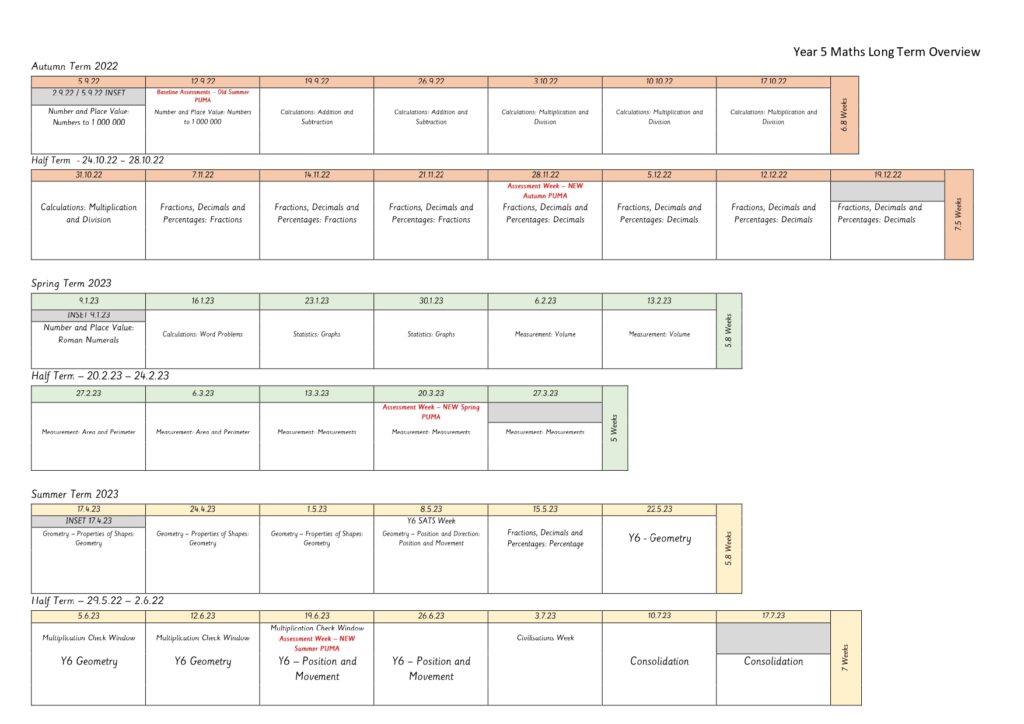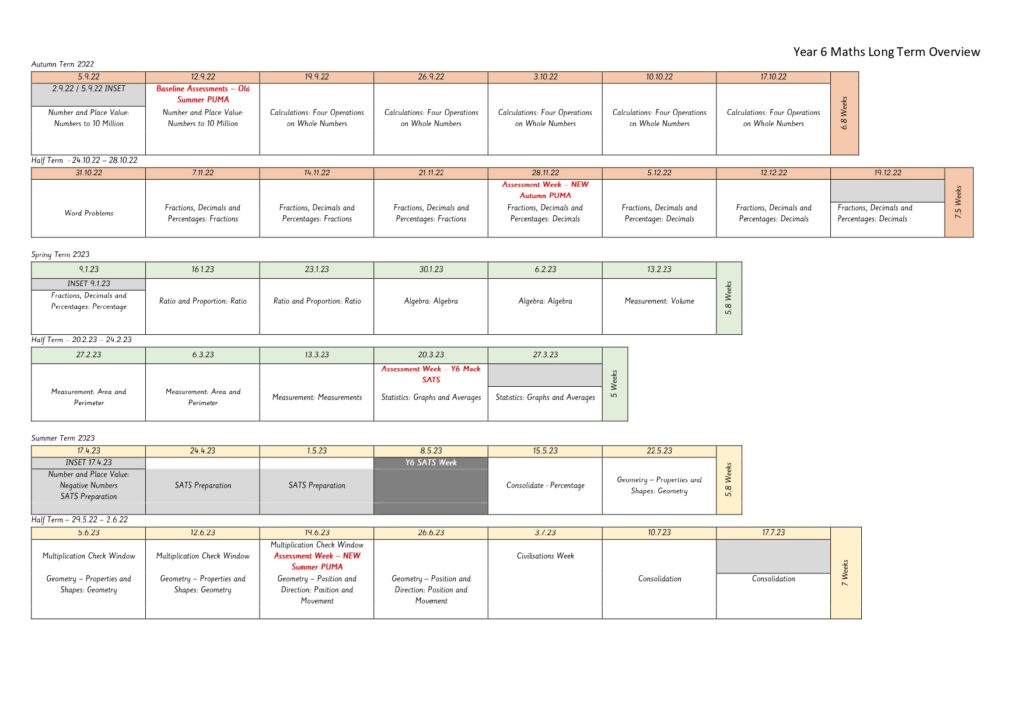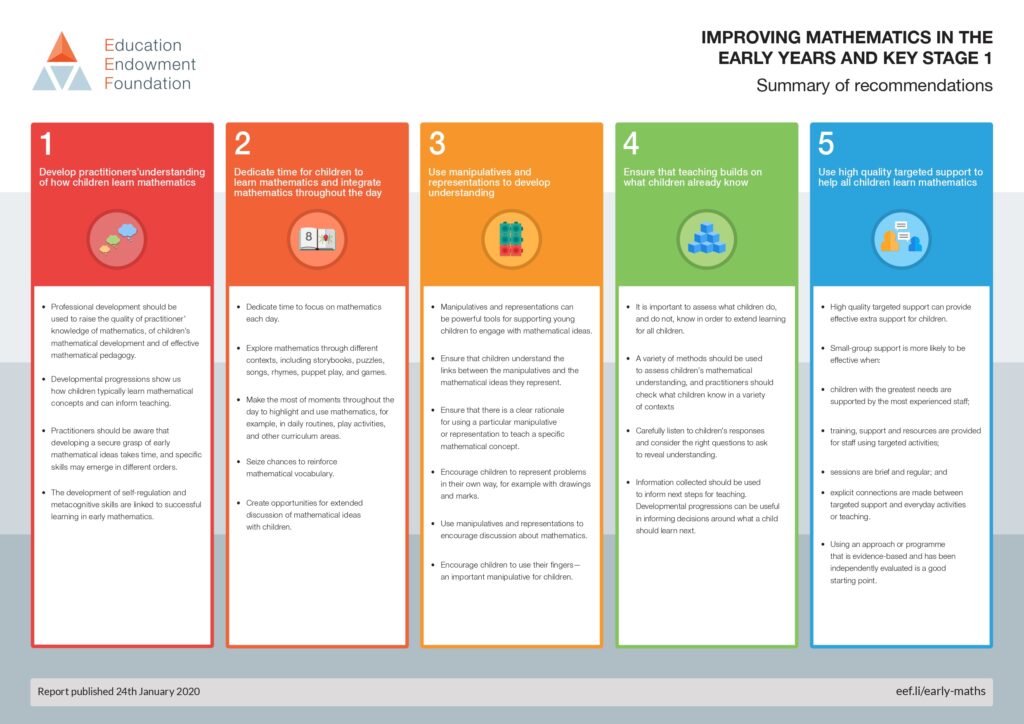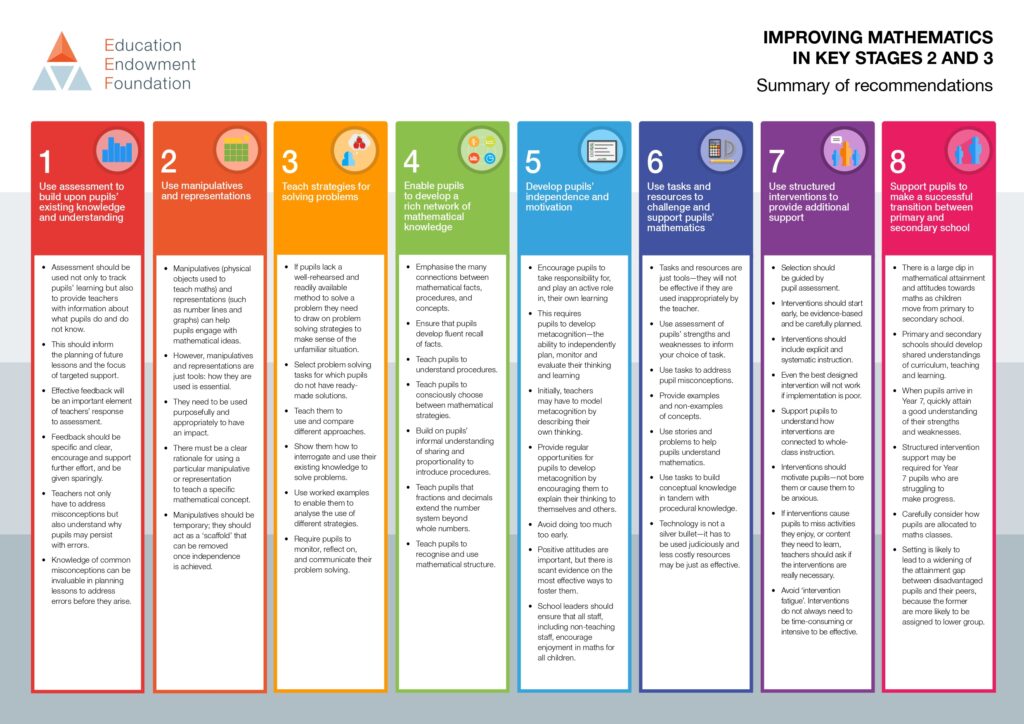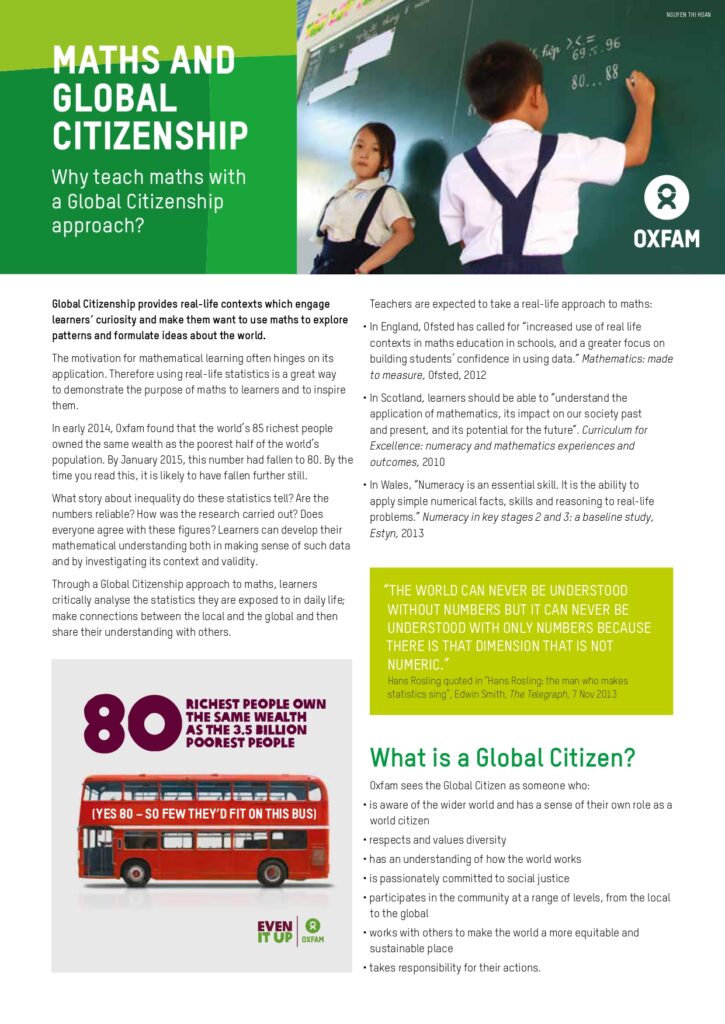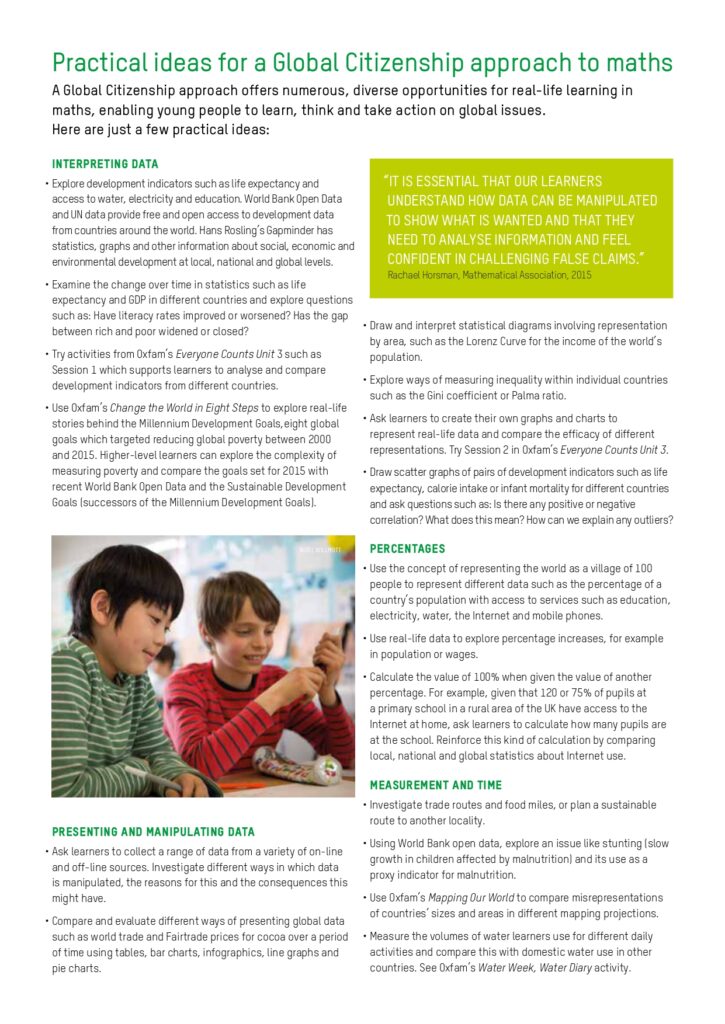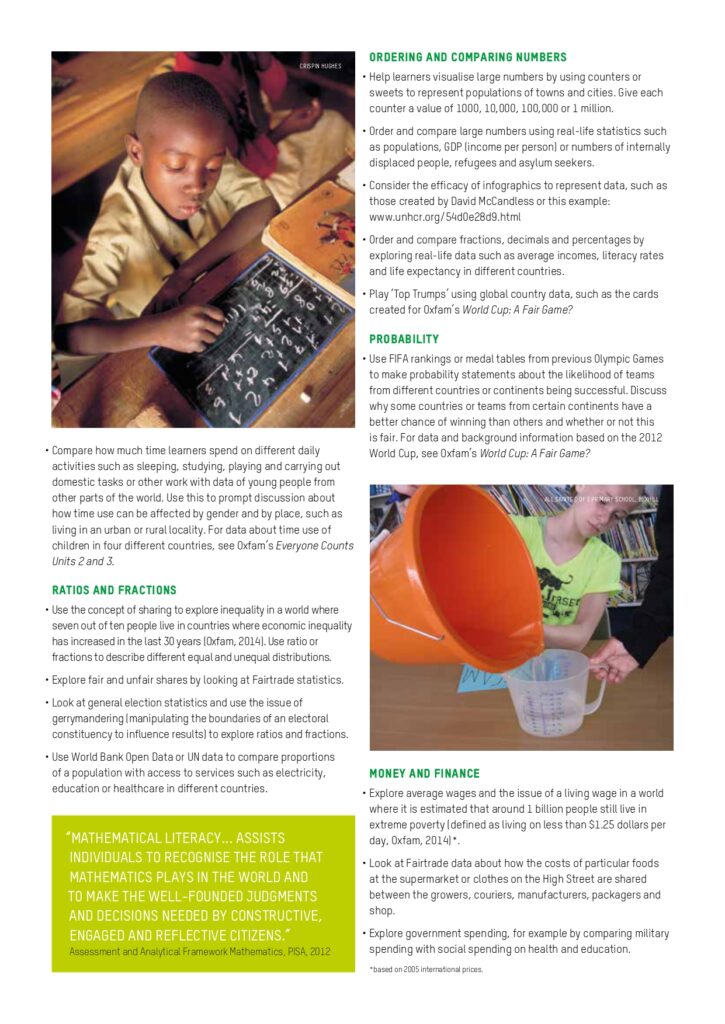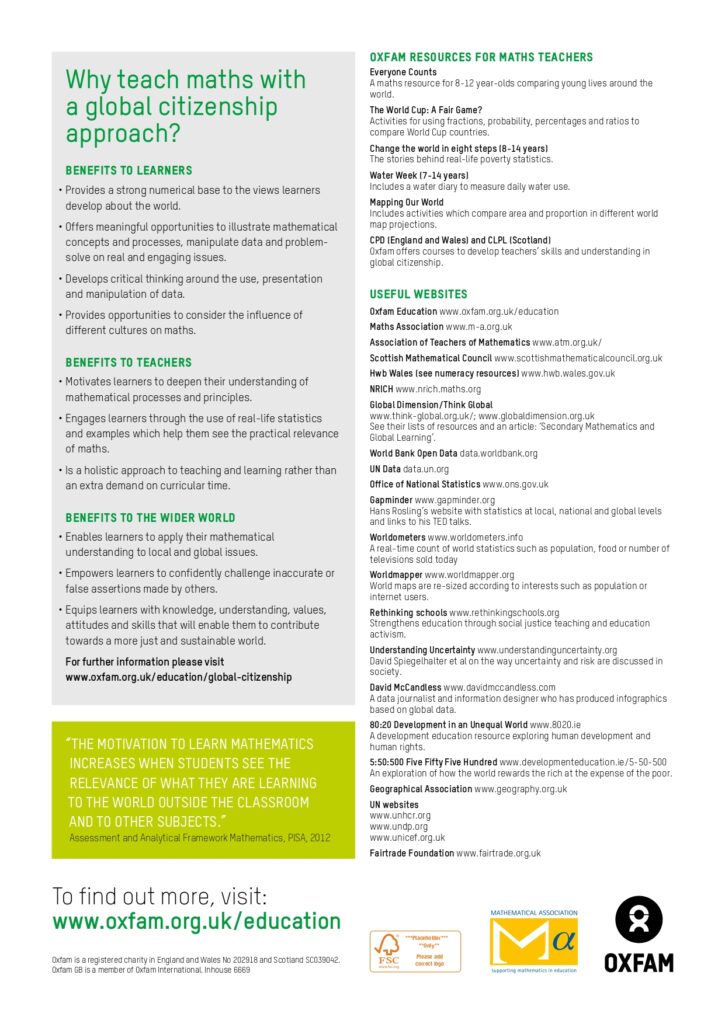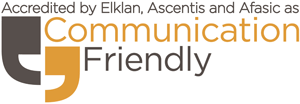“In order to thrive in a global 21st society, Attenborough mathematicians are taught the skills of mathematical fluency, reasoning, creative problem solving and the ability to apply maths to make sense of the world.“
At Attenborough School we believe that the teaching of mathematics should be practical, interactive and exploratory.
We use this award-winning mastery programme to deliver our maths lessons to our pupils. We aim to create a climate where all of our children are challenged to justify their mathematical thinking and are guided along their learning journey using physical, ‘concrete’ resources and pictorial representations so that they fully understand the concepts that are being introduced. Each lesson we deliver is broken down into 5 key parts.
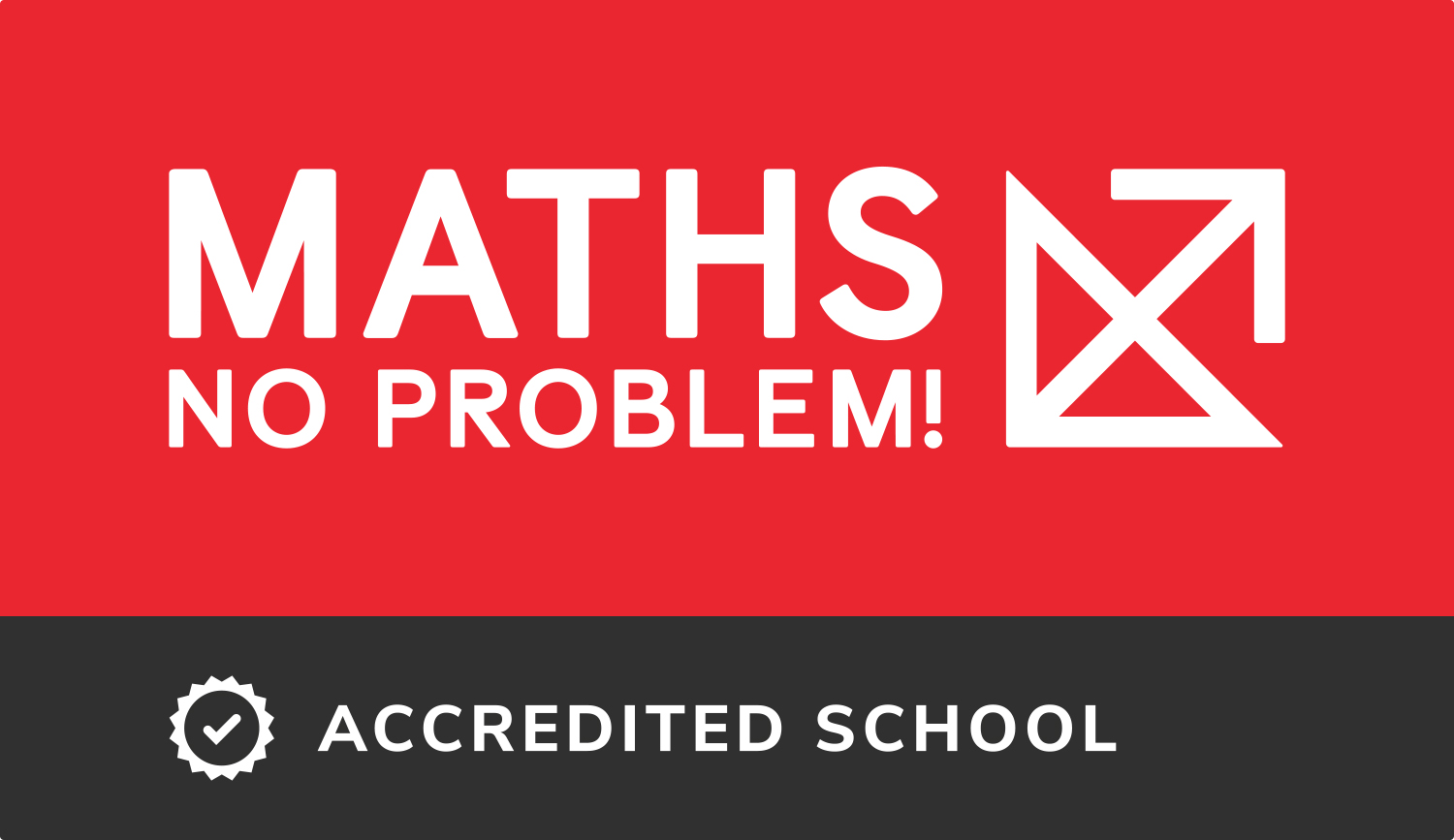
We are proud to be a
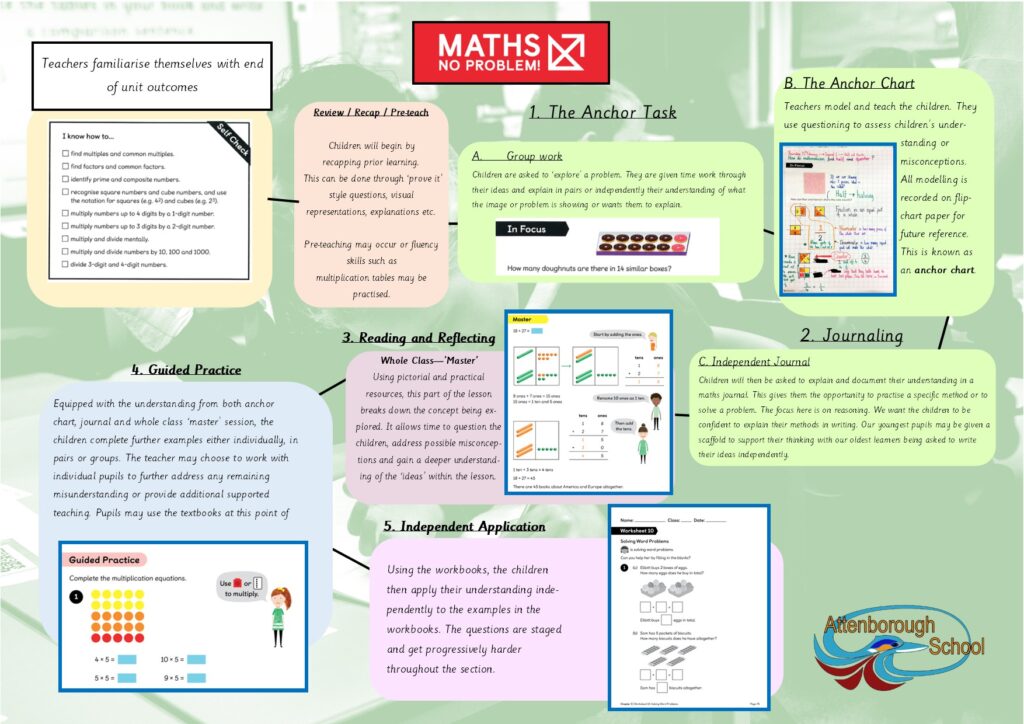
“The anchor charts in the classroom help refer back to previous learning and to explain current work. Pupils took great pride in explaining to their peers how to work through fraction calculations, using the anchor chart as a key part of this process” – Core Visit Report, Spring 2023
Structured discussion – ‘Anchor Chart’
As each lesson progresses, the teacher will bring together the thoughts from around the classroom that surround the problem. Through discussion and questioning, we aim to establish the most effective methods to use when trying to grasp the concept being introduced. Teachers model and explain learning using a flipchart (known as our ‘anchor charts’) which are then displayed throughout the unit of work for the children to refer to independently.
Journaling
Our main aim is for children to gain a deep understanding of each concept we introduce. An important aspect of each lesson is the journal as this allows the children to explain in their own words their understanding of the lessons objectives. There are four types of journal that the children are introduced to throughout their time in Attenborough School.
Descriptive journaling is to – explain and describe how they have reached an answer.
This type of journal is important for all children but is the dominant journal type used with our youngest learners in KS1. In Year 1, the children may be given a template or structure to help them with their thinking. We teach the children how to write explanations, using sentence starters and word banks to support this process of reasoning. By year 6, we expect all our learners to be expressing themselves fluently using both words, diagrams and images.
In this video, Mr Parkinson explains how ‘descriptive journalling’ has been used in our year 2 class to help the children explain their understanding of solving word problems involving division.
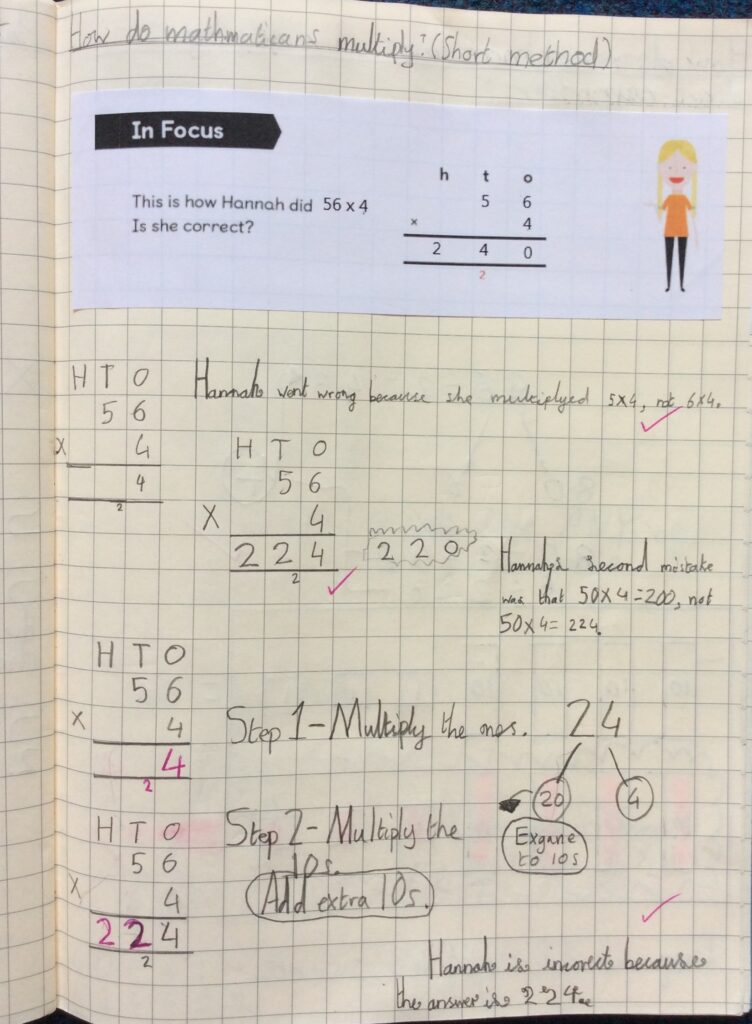
Evaluative Journaling is to – spot mistakes and describe how they would correct them
The children may be given two methods and asked which one they believe to be the most efficient. The children will use their understanding of the concept to give their explanations. Similarly, they may be provided with a character who has encountered an error in their thinking and asked to explain what the mistake or misconception is and how they should correct this.
Investigative journaling is to – notice patterns and maths rules they can use and describe.
This could be something such as ‘What do you notice when…’ or ‘Is there a pattern…’. The children will be expected to use their journal to explore this question, then using words, explain their findings.
Creative journaling is to – Show you know enough about this part of maths to create your own questions.
A journal that requires a strong understanding of the concepts being taught. This may take the form of one of the following questions, ‘can you create a problem that is similar to the anchor task’ or ‘can you create a problem that will involve the person solving needing to rename 10 tens or 10 hundreds?’
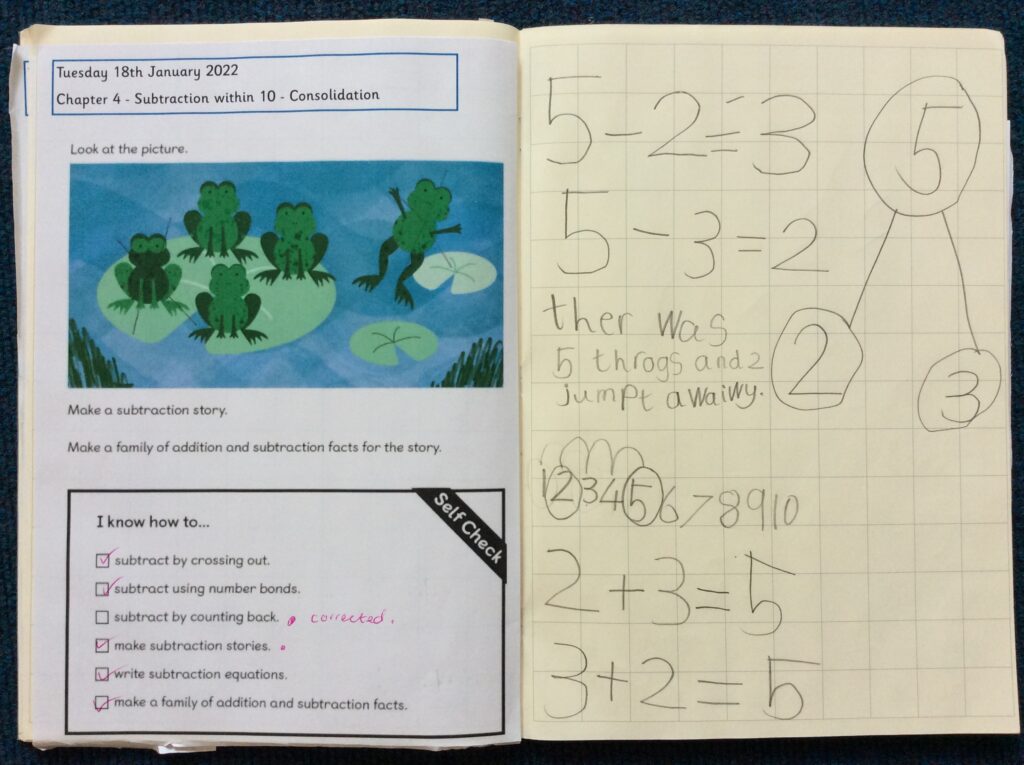
Workbooks
We use ‘workbooks’ during the final part of the lesson as a way of allowing the children to apply their understanding. This part of the lesson is very much independent, if a child is unable to complete all the activities within a specified lesson, then this tell us about their understanding and ability that day. If a child is confident and has a secure understanding then they should be able to complete the tasks with little intervention from the class teacher.
Assessing children’s understanding.
Teachers are continuously assessing the children in every lesson. We are then able to identify which children need to consolidate certain lessons or have some form of intervention to address their misunderstanding.
In addition to this ongoing assessment, we assess our pupils at three specific windows throughout the school calendar. We use ‘PUMA’ as a way of providing insights into how the children are doing in relation to other pupils the same age and whether there are any specific areas of mathematics in which we need to focus on.
Maths Home Learning
Children from years 1-6 will be given home learning in maths to be completed each week. We encourage children to spend no more than 5 minutes each day on their home learning.
Watch the video below to find out more
Home learning should be pitched at a level where the children can be independent but we welcome the support a parent can bring. To help parents support their children’s home learning tasks, we provide access to the ‘Maths No Problem!’ parent guides.
Merit Points
Children will recieve a mark on a maths merit card if they engage with their home learning. This can be filled after 2 weeks of engagement and is equivalent to a full merit card (10 merit points).
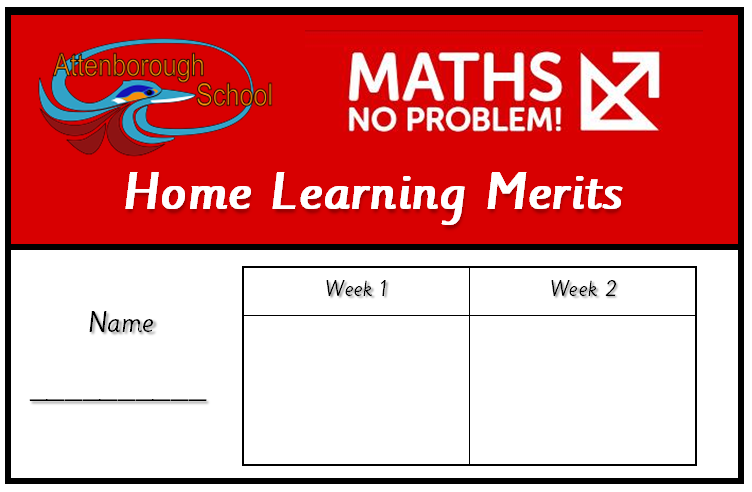
Yearly Overviews
Each ‘chapter’ or area of learning is taught in a sequence. This allows the children to learn new concepts and build on these throughout the year. The maths overviews have been constructed to allow mixed year group classes to work on similar concepts at the same time.
Further Reading
Published Blog Post – Maths No Problem – 1st June 2023
Click here to read all about our journey to mastery and how Maths – No Problem! has helped us to raise standards in our lessons.
We recognise that the Maths No Problem! scheme of learning aligns itself to the recomendations that the EEF (Education Endowment Foundation) make for improving maths in EYFS, KS1 & KS2.






